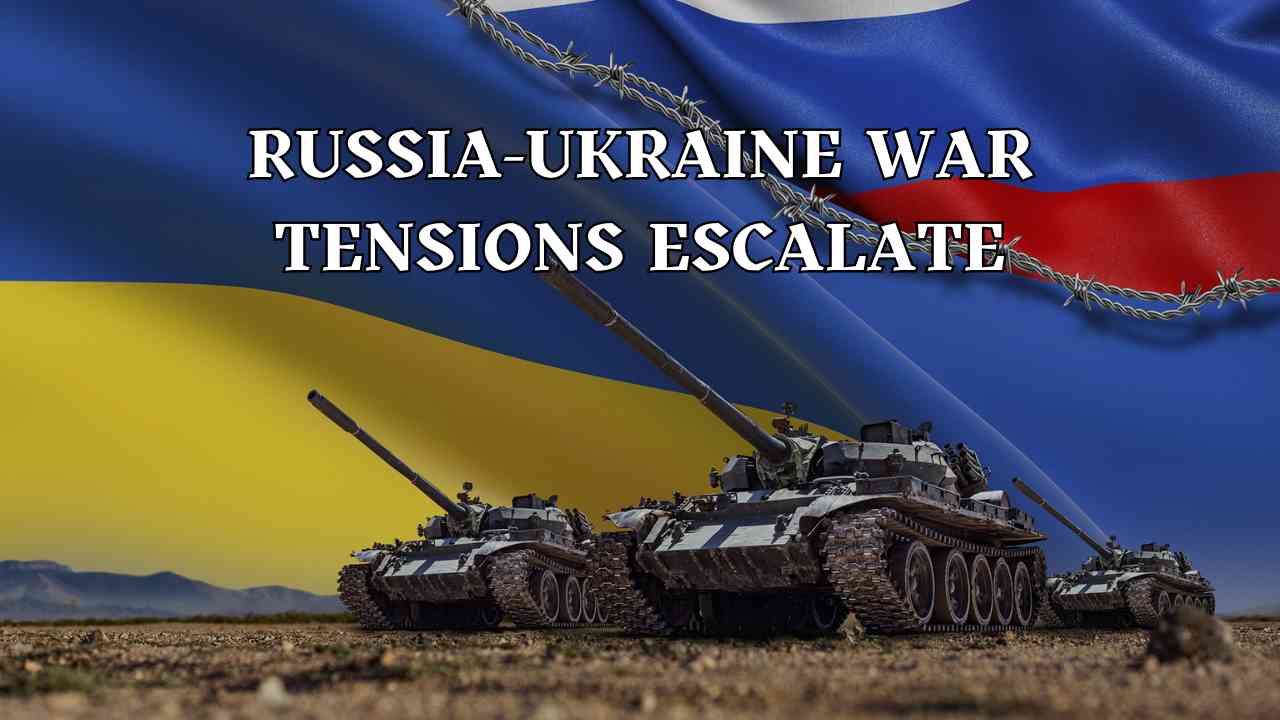The conflict between Russia and Ukraine, which began with Russia's invasion in February 2022, has evolved into a complex and multifaceted war. The international community, particularly the United States, has expressed its position that Russian President Vladimir Putin should not be allowed to win this war. This stance has significant implications for how the West responds to Ukraine's military actions, including its recent incursion into Russian territory. In this context, Ukraine's use of Western-supplied weapons has become a focal point, especially as the conflict expands beyond Ukraine's borders.
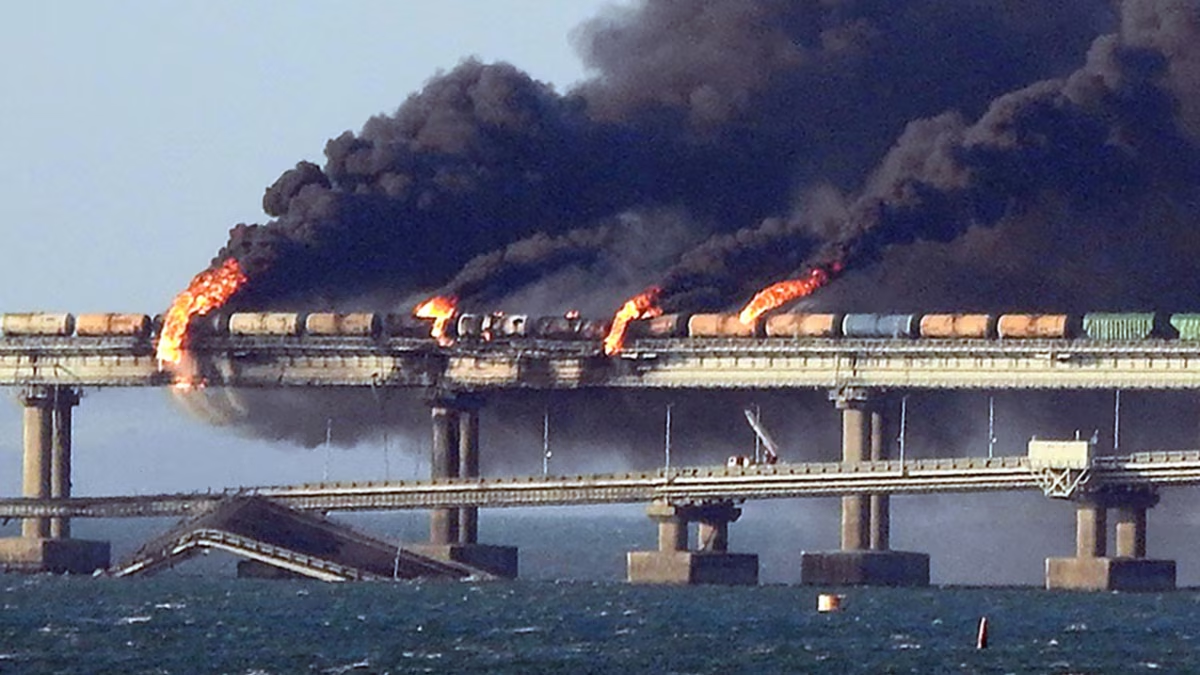
Destruction in Kursk: Accusations of U.S. Weapons Involvement
- The Incident in Kursk
On a recent day, two key bridges in Russia's Kursk region, specifically over the Seym River, were destroyed in what Moscow claims was a deliberate attack by Ukraine. The Russian government alleges that Ukraine used missiles provided by the United States to carry out this strike. According to Maria Zakharova, the spokeswoman for Russia's foreign ministry, the attack was likely executed using U.S.-made HIMARS rocket launchers. The destruction of these bridges resulted in the death of volunteers who were attempting to evacuate civilians from the area.
- Moscow's Response and Claims
Moscow has been vocal about its accusation that U.S. weapons were used in the attack on the Kursk bridges. Zakharova's statement on Telegram emphasized the unprecedented nature of this incident, marking the first time that the Kursk region has been hit by Western-made rocket launchers. The attack not only destroyed the bridge over the Seym River in the Glushkovo district but also led to the deaths of civilians and volunteers. Russia's foreign ministry has condemned the attack, framing it as a violation of international norms.
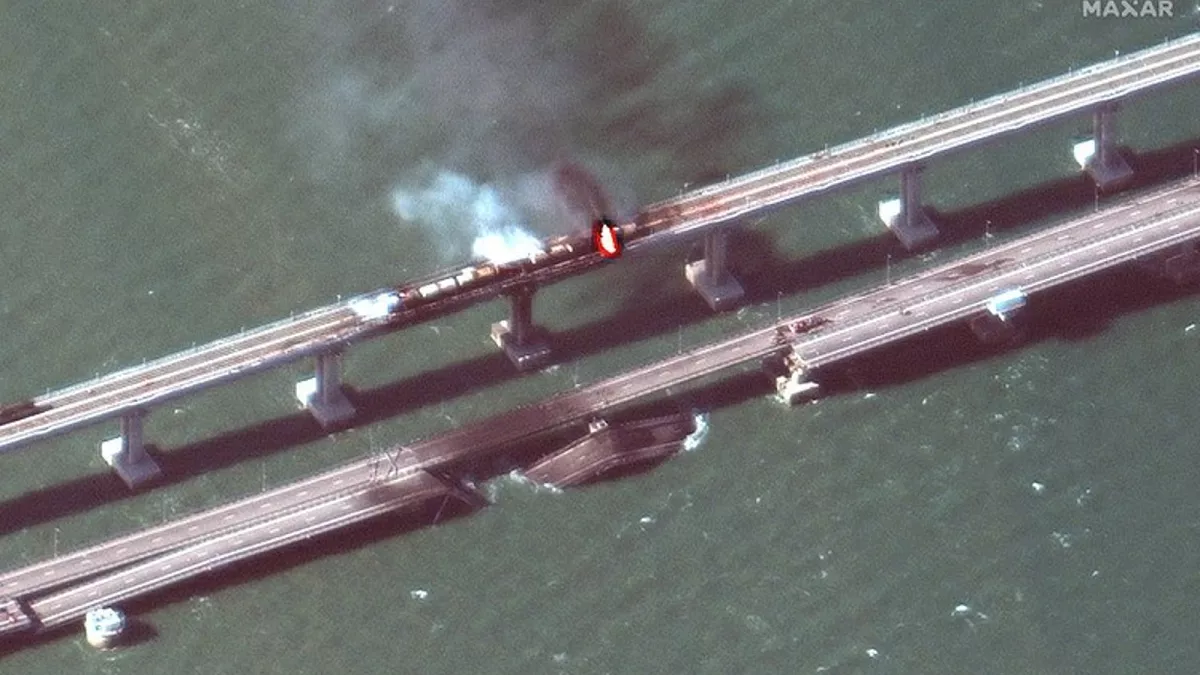
Ukraine's Strategic Offensive: A Push for Negotiations
- The Situation in Pokrovsk
Meanwhile, in eastern Ukraine, the city of Pokrovsk has become a focal point of intense military activity. Ukrainian military authorities have urged civilians to evacuate as Russian forces advance rapidly towards the city. Pokrovsk, a crucial defensive stronghold and logistical hub in the Donetsk region, has been a target for Moscow for months. The capture of Pokrovsk would severely weaken Ukraine's defensive capabilities and supply routes, bringing Russia closer to its goal of controlling the entire Donetsk region.
- Ukraine's Military Advances and Objectives
Ukraine's recent offensive into several Russian border regions, including the Kursk region, is part of a broader strategy to pressure Moscow into engaging in "fair" negotiations. Mykhailo Podolyak, an aide to Ukrainian President Volodymyr Zelenskiy, stated that Ukraine aims to inflict significant tactical defeats on Russia to compel it to negotiate. The offensive, which began on August 6, has seen Ukrainian forces advancing between one and three kilometers in some areas of the Kursk region. Ukraine has claimed control over 82 settlements, covering an area of 1,150 square kilometers.
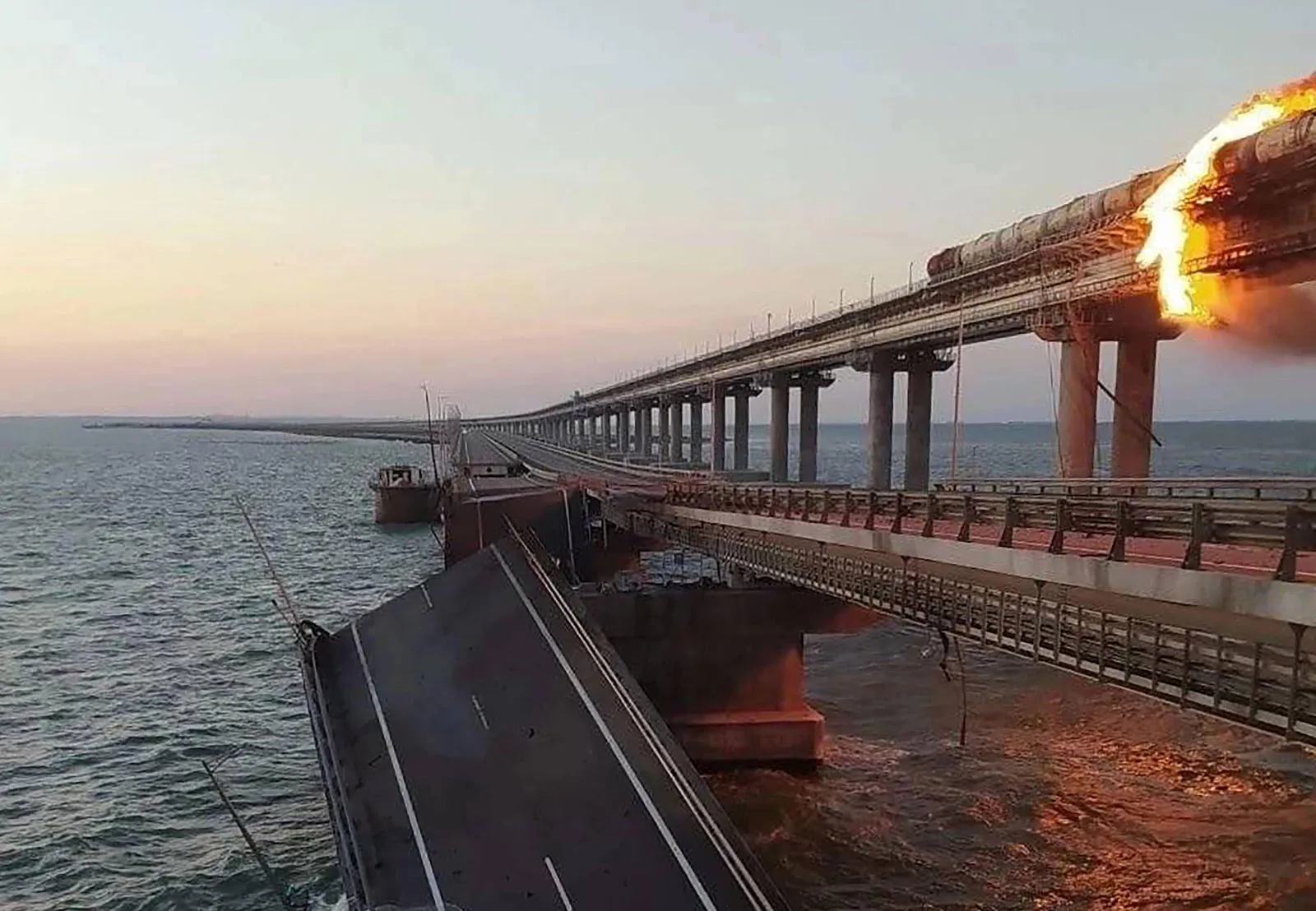
The Humanitarian Impact: Evacuations and Destruction
- The Situation in Glushkovo District
The destruction of the bridges in Kursk has led to a significant humanitarian crisis in the Glushkovo district, home to approximately 20,000 people. The attack has largely cut off the district, hindering the evacuation of civilians. Russian news agency Tass reported that a mass evacuation is underway, but the destruction of one of the key bridges has complicated the process. The use of Western rockets, particularly U.S.-made HIMARS, in these attacks has been a point of contention, with Russia accusing Ukraine of targeting civilian infrastructure.
- Ukraine's Military Gains
Ukraine's military gains in the Kursk region have been significant, with Ukrainian forces reportedly taking control of strategic locations and causing widespread destruction. Reporters from the Associated Press, who were on a government-organized trip through Kursk, described the aftermath of Ukraine's incursion as a "trail of destruction." In the town of Sudzha, just 10 kilometers from the Ukrainian border, Ukrainian forces have taken control, and evidence of their advance is visible in the damaged infrastructure, including a scorched and bullet-riddled administrative building.
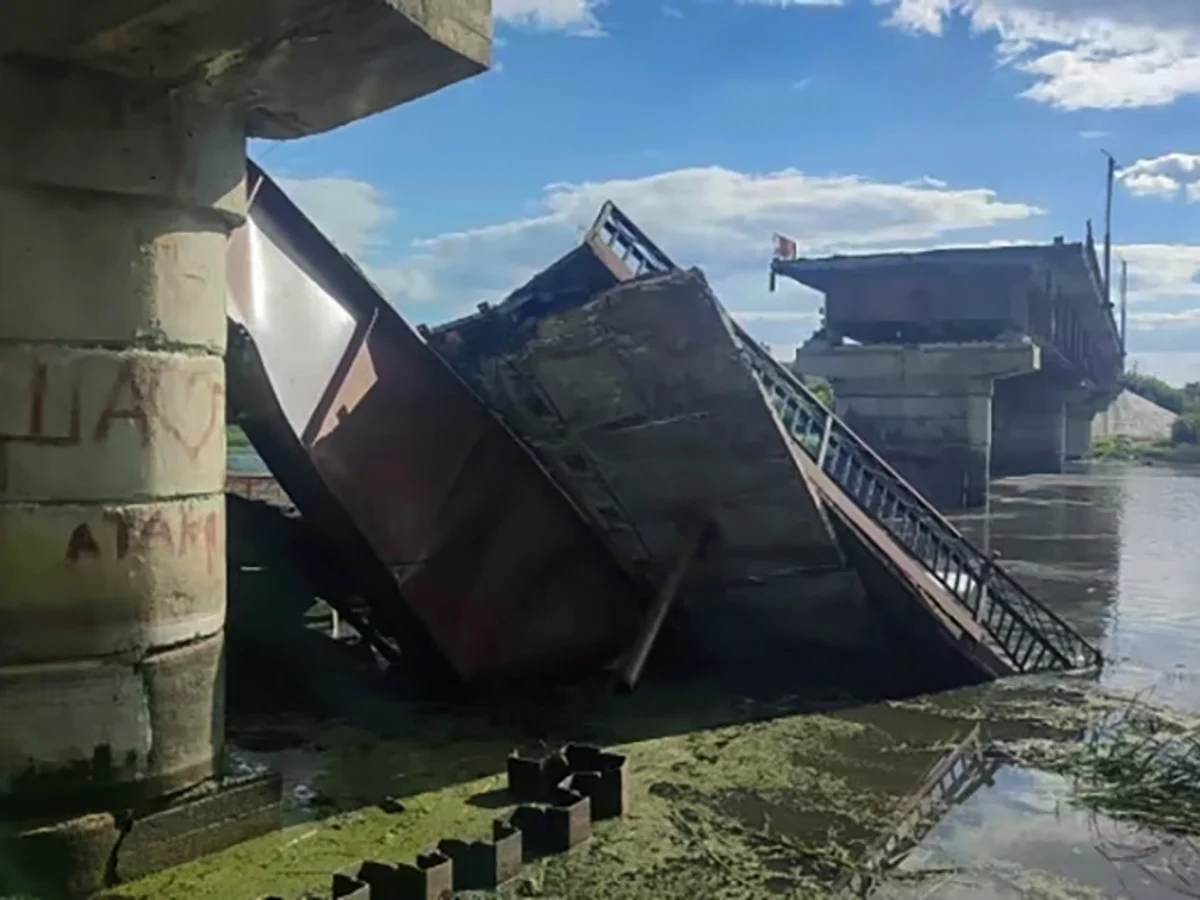
International Reactions and Implications
- NATO and Western Involvement
The involvement of Western nations, particularly NATO members, in supplying weapons to Ukraine has drawn sharp criticism from Russia. Moscow has accused NATO of aiding Ukraine's incursion by permitting the use of Western-supplied equipment. However, British officials have defended Ukraine's right to self-defense under international law, including the use of British-donated equipment in operations within Russia. The U.K. Ministry of Defence has maintained that Ukraine is entitled to defend itself against Russia's illegal attacks, although it has been cautious about allowing Ukraine to use certain weapons, like the Storm Shadow missiles, against targets inside Russia.
- U.S. Concerns and Strategic Considerations
The United States has so far supported Ukraine's use of U.S. equipment in its offensive, viewing it as a protective move. However, U.S. officials have expressed concerns about the potential for escalation if Ukrainian forces begin targeting Russian villages or non-military targets. Washington has imposed certain limits on Ukraine's use of U.S. weapons to avoid the perception of a direct NATO-Russia conflict. The U.S. stance reflects a delicate balancing act, as it continues to support Ukraine while trying to prevent the conflict from spiraling into a broader war.
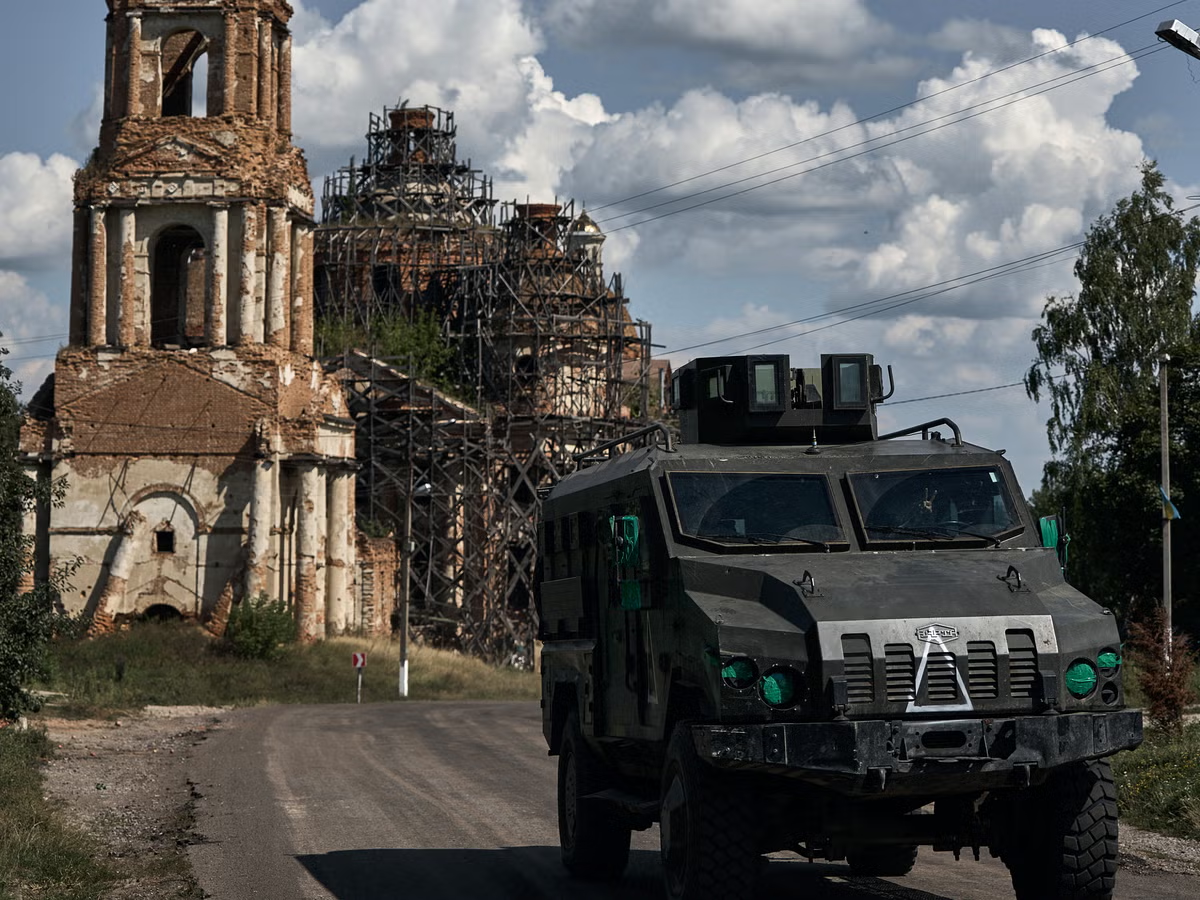
Broader Impacts: Sanctions, Media, and the Nuclear Threat
- Long-Term Sanctions on Russia
In addition to the military conflict, Russia is facing severe economic sanctions imposed by the West, which are expected to remain in place for decades, even if a peaceful settlement is reached in Ukraine. These sanctions, which have made Russia the most sanctioned country in the world, surpassing Iran and North Korea, are seen by Russian officials as a long-term challenge that will persist regardless of the outcome of the war.
- Media Independence and Information Control
The conflict has also highlighted issues of media independence and information control. Italy's ambassador to Moscow recently defended the independence of Italian media after Russian authorities summoned her over an Italian television report on the situation in Kursk. At the same time, the U.K. Ministry of Defence has reported that Russia is increasingly restricting access to information, deliberately slowing traffic on platforms like WhatsApp and YouTube, and considering blocking the latter entirely by autumn 2024.
- The Nuclear Power Plant Threat
The conflict has also raised concerns about the safety of nuclear facilities. Russia, which has been in control of the Zaporizhzhia nuclear power plant since shortly after its invasion of Ukraine, recently reported that a Ukrainian drone dropped an explosive charge near the plant, endangering staff. Both Moscow and Kyiv have accused each other of attempting to sabotage the plant's operations, underscoring the heightened risks associated with the ongoing conflict.
As the conflict between Russia and Ukraine continues to evolve, it is clear that the stakes are high not only for the two nations involved but also for the broader international community. The recent developments in Kursk, including the destruction of key infrastructure, the use of Western-supplied weapons, and the ongoing humanitarian crisis, highlight the war's expanding dimensions. The involvement of NATO and the West, coupled with the long-term impacts of economic sanctions and the potential threats to nuclear safety, suggest that this conflict will have far-reaching consequences that will be felt for years to come.
With inputs from agencies
Image Source: Multiple agencies
© Copyright 2024. All Rights Reserved Powered by Vygr Media.

